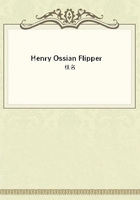
第16章
CANT TERMS, ETC.
AS a narrative of this description is very apt to be dry and uninteresting, I have thought it possible to remove in a measure this objection by using as often as convenient the cant lingo of the corps. Avocabulary which shall contain it all, or nearly all, becomes necessary. I have taken great care to make it as full as possible, and at the same time as intelligible as possible.
There are a few cant words and expressions which are directly personal, and in many cases self-explanatory.
They are for such reasons omitted.
"Animal," "animile," "beast," "reptile."-- Synonymous terms applied to candidates for admission into the Academy.
"Plebe."--A candidate after admission, a new cadet.
After the candidates are examined and the proficient ones admitted, these latter are known officially as "new cadets," but in the cant vernacular of the corps they are dubbed "plebes," and they retain this designation till the candidates of the next year report. They are then called "yearlings," a title applied usually to them in camp only. After the encampment they become "furloughmen" until they return from furlough in August of the following year. They then are "second-classmen," and are so officially and à la cadet throughout the year.
From this time till they graduate they are known as the "graduating class," so that, except the second class, each class has its own peculiar cant designation.
Candidates generally report in May--about the 20th --and during July and August are in camp. This is their "plebe camp." The next is their, "yearling camp." During the next, they are en congé, and the next and last is their "first-class camp." Of "plebe camp," "yearling camp," and "first-class camp," more anon.
"Rapid."--A "plebe" is said to be "rapid" when he shows a disposition to resist hazing, or to "bone familiarity" with older cadets--i.e., upper classmen.
"Sep."--A cadet who reported for admission in September.
"Fins."--A term applied to the hands generally, of course to the hands of "plebes.""Prelim."--A preliminary examination.
"Pred."--A predecessor.
"Pony."--A key, a corrigé.
"To bone."--To study, to endeavor to do well in any particular; for instance, to "bone demerits" is to strive to get as few as possible.
"To bone popularity."--This alludes to a habit practised, especially by, "yearlings" while in camp, and is equivalent to our every-day expression in civil life, viz., "to get in with.""To bugle it."--To avoid a recitation. To avoid a recitation is an act seldom done by any cadet. It is in fact standing at the board during the whole time of recitation without turning around, and thus making known a readiness to recite. At the Academy a bugle takes the place of the bell in civil schools.
When the bugle is blown those sections at recitation are dismissed, and others come in. Now, if one faces the board till the bugle blows, there is not then enough time for him to recite, and he is said to have "bugled it." Some instructors will call on any one who shows a disposition to do so, and will require him to tell what he knows about his subject.
"Busted," "broken."--These words apply only to cadet officers who are reduced to ranks.
"A cold case."--A sure thing, a foregone conclusion.
To "get chevrons."--To receive an appointment in the battalion organization. Each year, on the day the graduates receive their diplomas, and just after--possibly just before--they are relieved from further duty at the Academy, the order fixing the appointments for the next year is read, and those of the year previous revoked. It has been customary to appoint the officers, captains, and lieutenants from the first class, the sergeants from the second, and the corporals from the third. This custom has at times, and for reasons, been departed from, and the officers chosen as seemed best.
For any offence of a grave nature, any one who has chevrons is liable to lose them, or, in other words, to be reduced to ranks.
"A cit."--Any citizen.
"To crawl over."--To haze, generally in the severest manner possible.
"A chapel."--An attendance at church.
"To curse out."--To reprimand, to reprove, and also simply to interview. This expression does not by any means imply the use of oaths.
"To cut," "To cut cold."--To avoid, to ostracize.
"Debauch."--Any ceremony or any thing unusual. It may be a pleasant chat, a drill, or any thing that is out of the usual routine.
"To drive a squad."--To march it.
"Dropped."--Not promoted.
"To eat up."--See "To crawl over."
"Exaggerations."--It is a habit of the cadets to exaggerate on certain occasions, and especially when policing. "A log of wood," "a saw-mill," "a forest," and kindred expressions, are applied to any fragment of wood of any description that may be lying about. A feather is "a pillow;" a straw, "a broom factory;" a pin, an "iron foundry;" a cotton string, "a cotton factory;" and I have known a "plebe" to be told to "get up that sugar refinery," which "refinery" was a cube of sugar crushed by some one treading upon it.
Any thing--whatever it may be--which must be policed, is usually known by some word or term suggested by its use or the method or the place of its manufacture.
"To find."--To declare deficient in studies or discipline.